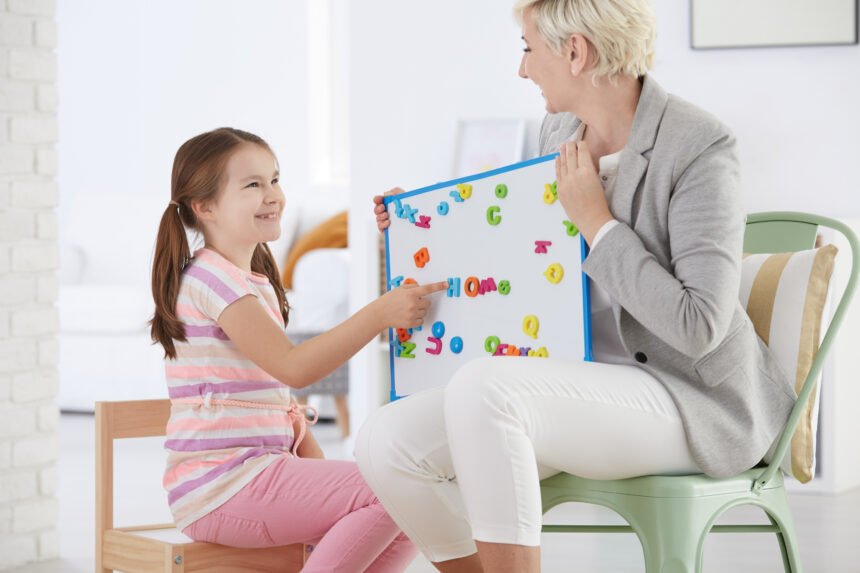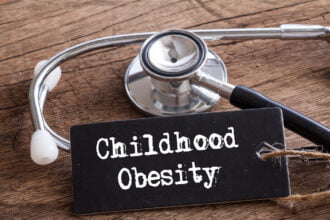For children, learning how to communicate emotions can be confusing and scary. They’re experiencing new things and don’t have the words to express themselves. Communication is more challenging for non-verbal children or those experiencing a delay in speech development. A trained pathologist can help. What is a speech pathologist, and how do they help kids? How do you know when it’s time to make an appointment?
What Is a Speech Pathologist?
What is speech pathology, and how does it differ from therapy? Speech pathologists specialize in communication. They’re experts in all aspects of speech, from the sounds we make to how we understand language. They can work with kids on literary and social interaction. They can help with issues like:
- Fluency: How well speech flows.
- Problem-solving: How well our minds work.
- Swallowing: How well we chew and swallow food.
- Articulation: How we say and put sounds together.
- Pragmatics: How we tell others what we’re thinking.
Professionals often use the terms speech therapy and pathology interchangeably. You may even see the position referred to as speech corrections and speech-language pathology.
When to Make an Appointment
When do you need to seek out a speech pathologist? Therapy doesn’t merely improve the act of speaking. Communication takes on many forms. Non-verbal people — those who can’t talk due to a variety of reasons — can benefit from professional help. In 2012, nearly 8% of American children between 3 and 17 had a communication disorder. Yet only around half of those affected received treatment. Your child’s pediatrician may refer you to a speech pathologist if they have trouble pronouncing specific letters. Others recommend therapy for kids who are difficult to understand when they talk. Speech pathology takes two different forms. The first is physical therapy, where your child works to strengthen their speech muscles and learn to speak correctly. Physical therapy is also helpful for children who experience chewing and swallowing problems. The other side of speech pathology is language therapy. Therapy helps your child understand things like speech, language, social cues and connecting words with emotions. For non-verbal children, understanding social cues and emotional language can seem impossible. However, professionals have tools at their disposal to make learning easy. Are you ready to find a professional in your area? If so, search in:
- Schools
- Colleges
- Hospitals
- Doctors’ offices
- Private Practices
Speech pathology turns communication into a fun and beneficial learning activity, even for young children. You don’t consider it education when you’re playing games, watching videos and using toys. Kids aren’t the only ones who can benefit from speech therapy. Around 180,000 Americans acquire aphasia each year, the loss of the ability to use or understand language. Those with this disorder typically require speech and language therapy to relearn communication techniques. Recovery is a slow process that can take months to years.
How Speech Pathologists Help Children Communicate
How do speech pathologists help children communicate emotions? We often take language for granted, as well as our ability to communicate. When a child has trouble doing what comes naturally to most, we often don’t know how to respond. We forget that we had to learn these skills, too, though it may have been easier to comprehend happiness and sadness. Emotions are complex, even when you can communicate clearly. They get more complicated if you don’t have the language skills to comprehend what you’re feeling. Social interactions tend to be challenging for non-verbal children or those who struggle with speech. Social decisions require a sophisticated understanding of multiple variables, such as the ability to understand and anticipate reactions. Speech pathologists use a variety of tools to help children communicate and comprehend emotions. For example, video modeling offers a 53% improvement rate in enhancing social and communication skills for children with ASD. With this evidence-based strategy, pathologists use video recordings to showcase desired skills. During studies, this tool led to faster acquisition of tasks than live modeling — acting out real-life situations. It addresses social communication function skills and appropriate behavior. Skills learned through video are maintained over time. A partially-verbal child might be able to say they’re happy or sad, but they might not comprehend complex emotions. A kid who’s non-verbal may not have the skills needed to communicate these feelings. Technology, flashcards and American Sign Language (ASL) can help people communicate with those around them.
Speech Pathology and Our Children: The Future
Do you have trouble communicating with your child? Does your kid have difficulty expressing emotions and frustrations? If so, it might be time to find a local speech pathologist. Adults tend to take verbal communication for granted. We forget we once had to learn language and what emotions mean. Yet not everyone communicates in the same way. Some children may find help with ASL, while others take advantage of digital devices. Therapists help kids utilize many forms of communication, understand emotions and carry out social interactions.










